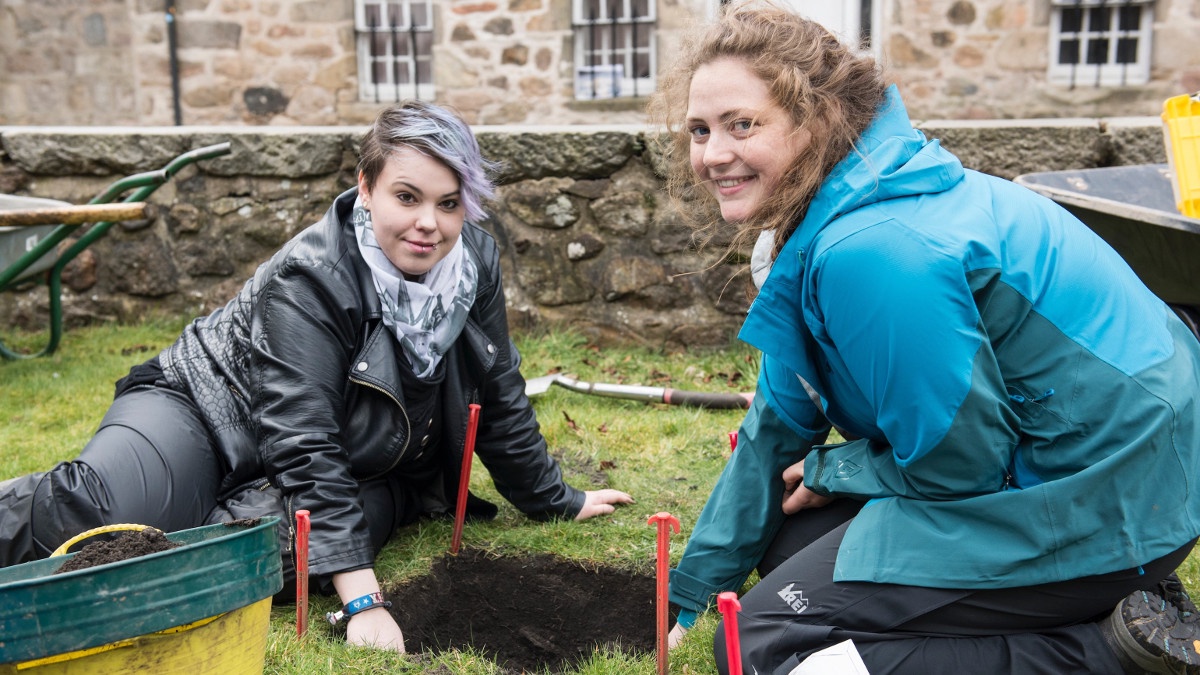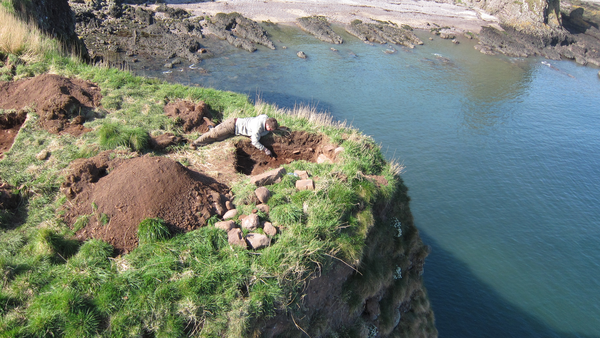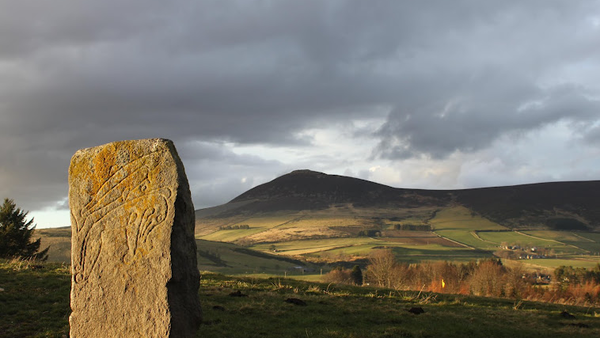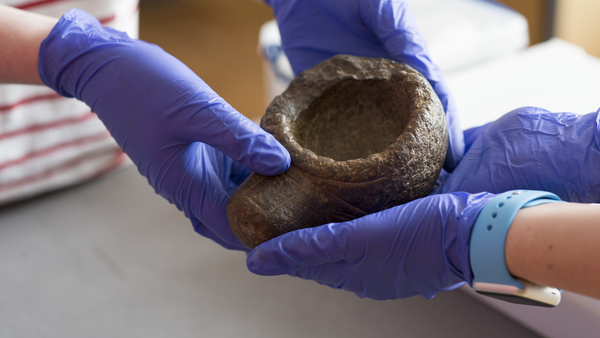Charlotte Doig United Kingdom

Archaeology is the only discipline that studies the human past in its entirety; from the origins of our species to the events of yesterday. Archaeology at Aberdeen has a special northern focus that is unique in the UK. Through lectures, field and laboratory work you will engage with the archaeology of Scotland, Scandinavia, northern Europe, the North Atlantic and northern latitudes of Asia and North America. You will be taught by internationally acclaimed researchers.
Ranked 4th in the UK for Archaeology and Anthropology, Guardian 2024

The BSc route focuses on the science side of archaeology. Courses will cover subjects such as the origins of modern humans, ancient environments, bioarchaeology, Scottish archaeology and excavation and research skills.
In seeking to understand how ancient people lived their lives, structured their world, and engaged with their environment, archaeologists ask the big questions that can provide us with the tools to tackle modern day issues such the effects of climate change, designing the ‘perfect’ diet, or investigating the spread of epidemics.
You will develop the practical and research skills required to work as a professional archaeologist or heritage specialist, taught and inspired by experts who are internationally recognised leaders in their fields, with many links and projects in areas of special interest overseas, such as Alaska.
Accredited Degrees
The University of Aberdeen has joined the prestigious list of institutions to have its archaeology programmes accredited by the Chartered Institute for Archaeologists (CIfA) and University Archaeology UK (UAUK). It is also the first Archaeology department in Scotland to be recognised in this way. Accreditation is awarded to those degrees programmes that are deemed to provide the relevant professional skills needed for a career in the historic environment. Choosing an accredited degree, therefore, gives you the best possible springboard to develop a career in archaeology.
In year 1, Archaeology will occupy one quarter of your curriculum, and in year 2 it will occupy one half.
This course, which is prescribed for level 1 undergraduate students (and articulating students who are in their first year at the University), is studied entirely online, takes approximately 5-6 hours to complete and can be taken in one sitting, or spread across a number of weeks.
Topics include orientation overview, equality and diversity, health, safety and cyber security and how to make the most of your time at university in relation to careers and employability.
Successful completion of this course will be recorded on your Enhanced Transcript as ‘Achieved’.
15 Credit Points
This course provides an introduction to how archaeological discoveries are made, the types of questions we can ask about past human societies using the evidence of their material remains, and the range of methods that archaeologists can draw on to try to answer the questions that excite them. By visiting archaeological sites, focussing on some of the world's most spectacular archaeological discoveries, and discussing some of the department's own original research projects, we will explore what the discipline of archaeology adds to our understanding of the human past and present, and what tools and techniques archaeologists employ in different environments.
15 Credit Points
This course provides a romping introduction to the deep human past, from our earliest hominin origins in Africa to the emergence of the first Early Medieval Kingdoms in Northern Europe. Along the way we will discover the key stages in the evolution of our species and what it means to be 'human', from our use of symbols to express thoughts, ritualistic behaviours to our domestication of plants and animals and militarized empires. The archaeological evidence for these fundamental transitions in human societies provides us with powerful insights into some of the world's most fascinating civilizations,
Select a further 90 credit points from courses of choice.
15 Credit Points
Britain has been inhabited by humans for more than half a million years. This course provides an introduction to the peoples and societies that have occupied this island from the first pioneer populations to the dawn of history.
15 Credit Points
Ever wondered how Archaeologists know what Neandertals ate, or what killed Ötzi the Iceman? Test Tubes & Trowels provides an accessible overview of the key scientific approaches used in modern archaeology to better understand archaeological sites and materials and to reconstruct past lives. Using a combination of lectures and practical workshops, the course will cover scientific methods of dating, artefact provenancing and ancient technologies, methods used for the study of diet, health, and movements of humans and animals in the past, and the identification of the environmental impacts of past human activities.
15 Credit Points
Archaeology is ultimately the study of human social lives. This course provides students with a detailed introduction to archaeological approaches to the study of human society. Through case studies and key texts we will investigate how archaeology can generate detailed insights into the richness and diversity of the diverse human communities and individuals of the past.
15 Credit Points
This course is a detailed introduction to the ecological, economic and spiritual dimensions to the archaeology of the northern world. Lectures will draw on a series of case-studies to examine the human adaptations to northern landscapes, ritual and spirituality, and finally the impact of colonisation and contact upon northern cultures.
Select a further 60 credit points from courses of choice.
15 Credit Points
We only have three days to find out! Excavation and field survey in modern archaeology can lead to spectacular discoveries regarding our past. This course, built around a short fieldschool and follow-up practicals and classes, will introduce and develop key skills in field archaeology, including excavation, field survey and sampling. Students will go through the whole process of designing, carrying out and reporting on a site and landscape in a course that will provide invaluable professional development.
15 Credit Points
This course is the first stage in producing an archaeological dissertation, which is completed in Level 4. Lectures and practical training sessions introduce the theory and practice of archaeological research design. As the course progresses the student puts this into practice through the development of their own original research project, its presentation at a research seminar, and the submission of a full research proposal, which they subsequently take forward as their dissertation. A personal supervisor is identified and provides support, in addition to the other lecturers involved in delivering the lectures and skills training.
15 Credit Points
Lectures and laboratory practicals will provide experience in the techniques used to process and analyse archaeological artefacts and samples. We will introduce analytical basics for lithic, ceramic, faunal and historic artefact analysis as well as techniques for conserving, cataloguing and curating archaeological collections. This course also introduces practical skills required to obtain employment and placement in an archaeological workplace through practical exercises in writing CVs, job cover letters and job interview skills.
15 Credit Points
During the summer after your second year of archaeology single honours students will go on a minimum of a two week long excavation. This course follows on from your field experience to help maximize the experiences and skills developed on these projects. Working with materials collected during the field project this course will develop key skills in communicating the results of field projects and the presentation of archaeological data.
Plus select 15 credit points from Level 3 Archaeology courses and 30 credit points from courses of choice.
30 Credit Points
Building directly on the skills learnt in AY3512, the student undertakes an original research project, under the guidance of their personal supervisor and course co-ordinator, and at the end of the course submits an archaeological dissertation. The session begins with a research seminar when students present how their research has progressed over the summer and what they will now be doing to complete it.
15 Credit Points
This course is portioned into three intensive short-courses, each focusing on one core biological approach used in archaeology. Topics offered will vary year to year, but may include isotope analysis; ancient DNA analysis; the study of animal and human remains; plant remains; and invertebrate, etc. Selected topics will be explored through lectures, seminars and practical/workshop sessions, providing an overview of each research area, its relevance to archaeology, scope, potential and limitations.
30 Credit Points
Archaeology is a contemporary discipline and the focus in archaeological questions, subject areas and theoretical debates constantly change with time. In this course we focus on some of the topics that are important for the ongoing research within our department, from domestication and climate change to community archaeology and relating to death. The different issues are discussed in text-based seminars, where the students themselves are responsible for presenting the topic and leading the seminars. The course aims to explore and challenge current trends in the archaeological discourse.
Plus select 30 credits from Honours Archaeology (at least 15 of which from Level 4 courses), plus 15 credit points from courses of choice.
We will endeavour to make all course options available; however, these may be subject to timetabling and other constraints. Please see our InfoHub pages for further information.
Students are assessed by any combination of three assessment methods:
The exact mix of these methods differs between subject areas, year of study and individual courses.
Honours projects are typically assessed on the basis of a written dissertation.
The information below is provided as a guide only and does not guarantee entry to the University of Aberdeen.
SQA Highers
Standard: AABB*
Applicants who have achieved AABB (or better), are encouraged to apply and will be considered. Good performance in additional Highers/ Advanced Highers may be required.
Minimum: BBB*
Applicants who have achieved BBB (or are on course to achieve this by the end of S5) are encouraged to apply and will be considered. Good performance in additional Highers/Advanced Highers will normally be required.
Adjusted: BB*
Applicants who have achieved BB, and who meet one of the widening access criteria are are guaranteed a conditional offer. Good performance in additional Highers/Advanced Highers will be required.
* Including good performance in at least two Mathematics/ Science subjects by the end of your senior phase of education.
More information on our definition of Standard, Minimum and Adjusted entry qualifications.
A LEVELS
Standard: BBB*
Minimum: BBC*
Adjusted: CCC*
* Including good performance in at least two Mathematics/ Science subjects by the end of your senior phase of education.
More information on our definition of Standard, Minimum and Adjusted entry qualifications.
International Baccalaureate
32 points, including 5, 5, 5 at HL, with two Mathematics/ Science subjects at HL.
Irish Leaving Certificate
5H with 3 at H2 AND 2 at H3 including a minimum of H3 from two Science or Mathematics subjects.
Entry from College
Advanced entry to this degree may be possible from some HNC/HND qualifications, please see www.abdn.ac.uk/study/articulation for more details.
SQA Highers
Standard: BBBB*
Applicants who have achieved BBBB (or better), are encouraged to apply and will be considered. Good performance in additional Highers/ Advanced Highers may be required.
Minimum: BBB*
Applicants who have achieved BBB (or are on course to achieve this by the end of S5) are encouraged to apply and will be considered. Good performance in additional Highers/Advanced Highers will normally be required.
Adjusted: BB*
Applicants who have achieved BB, and who meet one of the widening access criteria are are guaranteed a conditional offer. Good performance in additional Highers/Advanced Highers will be required.
Foundation Apprenticeship: One FA is equivalent to a Higher at A. It cannot replace any required subjects.
* Including good performance in at least two Mathematics/ Science subjects by the end of your senior phase of education.
More information on our definition of Standard, Minimum and Adjusted entry qualifications.
A LEVELS
Standard: BBC*
Minimum: BCC*
Adjusted: CCC*
* Including good performance in at least two Mathematics/ Science subjects by the end of your senior phase of education.
More information on our definition of Standard, Minimum and Adjusted entry qualifications.
International Baccalaureate
32 points, including 5, 5, 5 at HL, with two Mathematics/ Science subjects at HL.
Irish Leaving Certificate
5H with 3 at H2 AND 2 at H3 including a minimum of H3 from two Science or Mathematics subjects.
Entry from College
Advanced entry to this degree may be possible from some HNC/HND qualifications, please see www.abdn.ac.uk/study/articulation for more details.
The information displayed in this section shows a shortened summary of our entry requirements. For more information, or for full entry requirements for Sciences degrees, see our detailed entry requirements section.
To study for an Undergraduate degree at the University of Aberdeen it is essential that you can speak, understand, read, and write English fluently. The minimum requirements for this degree are as follows:
IELTS Academic:
OVERALL - 6.0 with: Listening - 5.5; Reading - 5.5; Speaking - 5.5; Writing - 6.0
TOEFL iBT:
OVERALL - 78 with: Listening - 17; Reading - 18; Speaking - 20; Writing - 21
PTE Academic:
OVERALL - 59 with: Listening - 59; Reading - 59; Speaking - 59; Writing - 59
Cambridge English B2 First, C1 Advanced or C2 Proficiency:
OVERALL - 169 with: Listening - 162; Reading - 162; Speaking - 162; Writing - 169
Read more about specific English Language requirements here.
The University of Aberdeen International Study Centre offers preparation programmes for international students who do not meet the direct entry requirements for undergraduate study. Discover your foundation pathway here.
You will be classified as one of the fee categories below.
| Fee category | Cost |
|---|---|
| RUK | £9,250 |
| Tuition Fees for 2024/25 Academic Year | |
| EU / International students | £24,800 |
| Tuition Fees for 2024/25 Academic Year | |
| Home Students | £1,820 |
| Tuition Fees for 2024/25 Academic Year |
Students from England, Wales and Northern Ireland, who pay tuition fees may be eligible for specific scholarships allowing them to receive additional funding. These are designed to provide assistance to help students support themselves during their time at Aberdeen.
Further Information about tuition fees and the cost of living in Aberdeen
View all funding options in our Funding Database.
The curriculum is designed to equip graduates with the practical and research skills required to work as professional archaeologists. The broad-based nature of the discipline enables graduates to compete strongly in the market place. The analytical and communications skills acquired by Archaeology graduates make them sought-after in a wide variety of fields including commerce, research and a range of professions.
Whatever stage you are at from first year to final year and beyond, the Careers and Employability Service can help you with career planning and offer you guidance on the way. There are many opportunities within the University of Aberdeen to gain experience and build a competitive set of skills. Enhancing your employability during your time with us is essential for your future career success.
You will be taught by a range of experts including professors, lecturers, teaching fellows and postgraduate tutors. Staff changes will occur from time to time; please see our InfoHub pages for further information.


We encourage all of our students to participate in a University field project, although opportunities to work on approved digs and surveys outside of the University are also supported.
Find out more
A group for all those studying Archaeology at the University of Aberdeen or for anyone who has an interest in the past.
Find out moreDiscover Uni draws together comparable information in areas students have identified as important in making decisions about what and where to study. You can compare these and other data for different degree programmes in which you are interested.